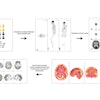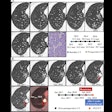A low score on a coronary calcium CT scan indicates minimal calcified plaque, yet this positive outcome could potentially mislead individuals into disregarding measures to protect their hearts and blood vessels, according to an article published on April 2 in the New York Times.
Coronary calcium CT is often recommended for people at moderate risk of heart disease because it highlights calcium deposits in plaque that inhibit blood flow through the coronary arteries, and knowledge of the presence of calcium has been shown to motivate lifestyle changes.
Assessing a person's risk of having a heart attack using standard risk factors is imprecise and tends to overestimate the risk of developing heart disease, noted Dr. John Mandrola, a cardiac electrophysiologist at Baptist Health in Louisville, KY, in the article. But combining these traditional risk factors with the results of a calcium CT scan can provide a clearer picture of a person's likelihood of experiencing a heart attack and even predict mortality.
What's more, knowing the calcium score of a patient can help clinicians assign appropriate treatment, according to the article. Patients who have a calcium score of 0 generally have a good prognosis and are usually not prescribed a statin or other cholesterol-lowering medication. However, calcium CT does not take into account soft plaque, and having a calcium score of 0 does not necessarily clear patients from the risk of heart disease.
"It's not a ticket to be reckless, but it can help reduce a person's anxiety about their risk of a heart attack," Dr. Udo Hoffmann of Massachusetts General Hospital said in the story. "The calcium score is a risk assessment tool, helpful in tailoring medical therapy, diet, and exercise."




















